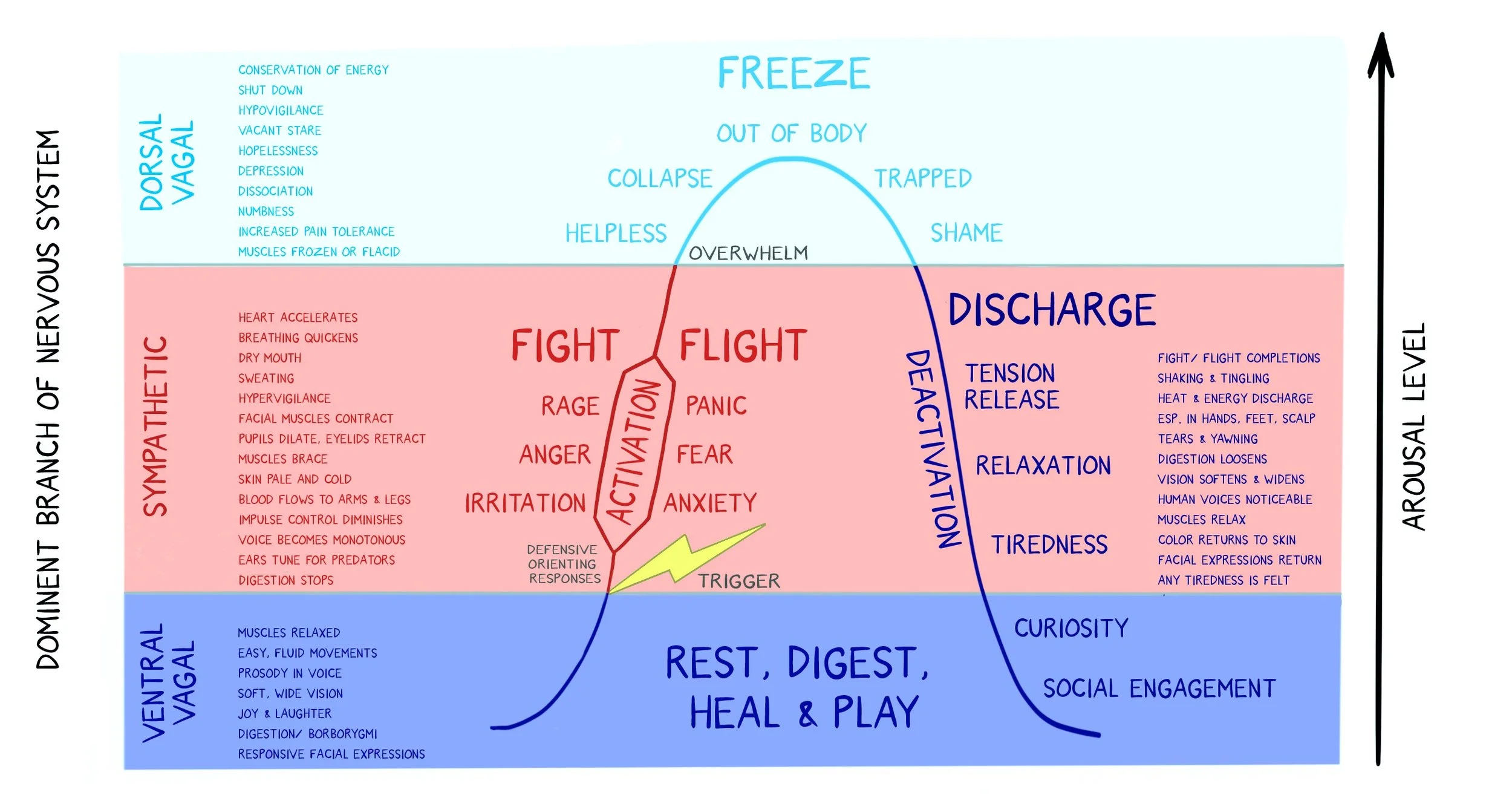Introduction
Somatic illnesses, which include both medically explained and unexplained physical symptoms, often intertwine with psychological factors, necessitating a comprehensive treatment approach (American Psychiatric Association [APA], 2013). Counseling has emerged as a pivotal component in addressing the multifaceted needs of individuals grappling with these conditions. This article delves into the significance, methodologies, and efficacy of counseling for patients with somatic illnesses, supported by contemporary research and clinical insights.
Read More- Couselling for Individuals with HIV/AIDS
What are Somatic Illnesses?
- Somatic illnesses refer to conditions where individuals experience physical symptoms that may or may not have a discernible medical cause.
- When these symptoms lack a clear medical explanation and are accompanied by significant distress or functional impairment, they are often classified under somatic symptom disorders (SSD) (APA, 2013). SSD is characterized by an obsessive focus on physical symptoms, such as pain or fatigue, leading to substantial distress and disruption in daily life. Research suggests that the exact cause of SSD is unclear, but it likely involves heightened body awareness and a tendency to associate sensations with illness (Barsky, 2016).
- The interplay between mind and body is evident in somatic illnesses. Psychological factors such as stress, anxiety, and unresolved trauma can manifest as physical symptoms (Kroenke, 2007).
- Chronic physical ailments can lead to psychological distress, creating a cyclical relationship that exacerbates both mental and physical health issues. This bidirectional influence underscores the necessity for integrated treatment approaches that address both psychological and somatic aspects.
Role of Counseling in Somatic Illnesses
Counseling serves as a bridge between the psychological and physical facets of somatic illnesses. Through various therapeutic modalities, counseling aims to-

Job of Psychologist in Somatic Illness Management
- Alleviate Psychological Distress- Addressing underlying emotional issues can lead to a reduction in physical symptoms (Henningsen, Zipfel, & Herzog, 2007).
- Enhance Coping Mechanisms- Equipping individuals with strategies to manage stress and emotional challenges associated with their condition (van der Feltz-Cornelis et al., 2016).
- Improve Quality of Life- By mitigating psychological distress, patients often experience enhanced overall well-being and functionality (Luyten & Fonagy, 2018).
Read More- Trauma Mangement
Therapeutic Modalities in Counseling for Somatic Illnesses
Some important therapies used to treat somatic illnesses include-
1. Cognitive Behavioral Therapy (CBT)
CBT is one of the most effective interventions for individuals with somatic illnesses. This structured, evidence-based approach helps patients identify and modify maladaptive thought patterns and behaviors contributing to their symptoms (Kroenke, 2007). Studies have shown that CBT can significantly reduce symptom severity and improve overall functioning in individuals with SSD (Gili et al., 2019).
Key techniques in CBT for somatic illnesses include-
- Cognitive Restructuring- Challenging and altering distorted thoughts related to physical symptoms.
- Behavioral Activation- Encouraging engagement in meaningful activities despite symptoms.
- Relaxation Techniques- Implementing mindfulness, progressive muscle relaxation, and breathing exercises to reduce stress-induced somatic symptoms (Luyten & Fonagy, 2018).
2. Short-Term Psychodynamic Psychotherapy (STPP)
STPP is a focused, time-limited therapy that explores unconscious conflicts and emotional processes manifesting as physical symptoms (Abbass, Kisely, & Kroenke, 2009). This therapy is based on the assumption that unresolved emotional conflicts contribute to the persistence of somatic complaints.

STPP
A meta-analysis of randomized controlled trials indicated that STPP is a valid treatment option for functional somatic disorders, leading to somatic symptom reductions that persist over time (Abbass et al., 2009). STPP involves-
- Exploring Early Life Experiences- Understanding how past emotional experiences shape current symptoms.
- Developing Insight- Helping patients recognize and verbalize emotions rather than somatizing them.
- Addressing Interpersonal Relationships- Improving the way patients manage emotional distress in social interactions (Henningsen et al., 2007).
3. Somatic Experiencing and Body-Oriented Therapies
Somatic experiencing (SE) is a therapeutic approach that emphasizes the mind-body connection, helping individuals become more attuned to internal sensations and release stored tension (Levine, 2010). This therapy is particularly useful for individuals with trauma-related somatic symptoms.

Somatic Experiencing Therapy (Beyond Psychology Center)
Key techniques in SE include-
- Tracking Sensory Experiences- Noticing and processing bodily sensations associated with distress.
- Gradual Exposure to Sensory Triggers- Allowing the nervous system to regulate through controlled exposure.
- Grounding Techniques- Helping individuals connect with their bodies in a non-threatening way (Levine, 2010).
Research suggests that body-oriented therapies such as mindful walking, tai chi, and yoga can promote emotional awareness, healing from trauma, pain relief, and stress reduction by enhancing the mind-body connection (van der Kolk, 2014).
4. Acceptance and Commitment Therapy (ACT)
ACT is a third-wave cognitive-behavioral intervention that encourages patients to accept their symptoms rather than struggle against them (Hayes, Strosahl, & Wilson, 2012). The primary goal of ACT is to help individuals live a meaningful life despite their somatic symptoms.
ACT interventions include-
- Cognitive Defusion- Learning to detach from distressing thoughts about symptoms.
- Values-Based Action- Encouraging engagement in life activities aligned with personal values.
- Mindfulness Practices- Cultivating awareness and acceptance of bodily sensations without judgment (Hayes et al., 2012).
Efficacy of Counseling Interventions
Research underscores the effectiveness of counseling interventions in managing somatic illnesses-
- A systematic review of 75 randomized trials revealed that psychotherapy significantly reduced depression severity and improved quality of life in patients with comorbid depression and somatic disorders (Gili et al., 2019).
- Another meta-analysis focusing on STPP for functional somatic disorders found significant reductions in somatic symptoms, with effects maintained in long-term follow-up (Abbass et al., 2009).
Challenges in Counseling Individuals with Somatic Illnesses
Despite its benefits, counseling individuals with somatic illnesses presents unique challenges:
- Patient Resistance- Some individuals may be skeptical about the psychological basis of their physical symptoms, leading to resistance in engaging with therapy (Henningsen et al., 2007).
- Diagnostic Complexity- Differentiating between medically explained and unexplained symptoms requires thorough assessment to tailor appropriate interventions (Luyten & Fonagy, 2018).
- Comorbid Conditions- The presence of co-occurring mental health disorders, such as anxiety or depression, can complicate treatment and necessitate integrated therapeutic approaches (van der Feltz-Cornelis et al., 2016).
Conclusion
Counseling plays a crucial role in the holistic treatment of individuals with somatic illnesses. By addressing the psychological components that often accompany physical symptoms, therapeutic interventions can lead to significant improvements in both mental and physical health outcomes. Ongoing research and clinical practice continue to refine these approaches, striving to enhance the quality of life for individuals navigating the complexities of somatic illnesses.
References
Abbass, A., Kisely, S., & Kroenke, K. (2009). Short-term psychodynamic psychotherapy for somatic disorders: Systematic review and meta-analysis of clinical trials. Psychotherapy and Psychosomatics, 78(5), 265-274.
American Psychiatric Association. (2013). Diagnostic and statistical manual of mental disorders (5th ed.). Washington, DC: APA.
Barsky, A. J. (2016). Assessing and managing somatization in primary care. Journal of General Internal Medicine, 31(3), 303-307.
Gili, M., McMillan, D., Wingrove, T., & Davidson, R. (2019). Psychotherapy for somatic symptom disorder: A systematic review. Psychological Medicine, 49(1), 1-10.
Hayes, S. C., Strosahl, K. D., & Wilson, K. G. (2012). Acceptance and commitment therapy: The process and practice of mindful change. Guilford Press.
Subscribe to Careershodh
Get the latest updates and insights.
Join 13,985 other subscribers!
Niwlikar, B. A. (2025, January 13). Somatic Illnesses and 4 Important Types of Therapies to Manage It. Careershodh. https://www.careershodh.com/therapy-for-somatic-illnesses/

